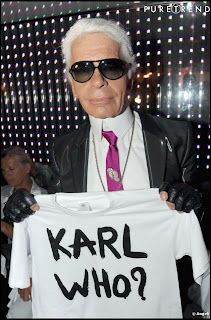A Little Bit about 31 Bits and The Fair Trade Movement
Ten and even five years ago, to find artisan hand crafted necklaces, you often had to travel to your nearest sleepy art town and venture into the most hippy dippy (as Michael Kors would put it) shops in the area. Hopefully you didn't mind smelling like patchouli.
Within the last two years, this has changed dramatically with the onset of the green movement and somewhat increased global awareness. Couple this with the rise of the charity trend and media coverage of tainted mass produced goods and "fair trade goods" movement is easy to understand. People now ask for "fair trade" products by name.
"Fair trade goods" generally refer to goods that are imported from a lesser developed country or village into a more developed country (i.e. Uganda to the US). Wages paid to the artisans, who are usually individuals or small groups of people rather than large factories, are determined to be a fair living wage within their respective location. Fair trade goods generally have less of a harmful impact to the environment than goods produced in large factories. Fair trade goods can be produced by either male or female artisans but commonly a company's initiative or mission statement is to help women support themselves and their families.
 |
| Four of Five of the 31 Bits Costa Mesa Crew |
31 Bits Jewelry can be classified as this type of fair trade line. The company was founded by Kallie Dovel in 2008 when she was just in her early 20s. After visiting Uganda with a charity group, Kallie met women recovering from the country's civil war in a small refugee camp. After interacting with the women, she noticed that as a craft and pasttime these women created necklaces. A quick thinking Kallie bought several necklaces and resold them upon her return, sending the extra money back to the women in Uganda.
 |
| 31 Bits Necklace |
Soon Kallie joined forces with friend Alli Swanson. The two formed 31 Bits jewelry whose name was taken from Bible's Proverbs 31, which describes a woman providing for her family. The "bits" refers to the small pieces of paper from which the line's beads are made. Eventually three other young women joined as founders of the company. The venture, which seems to be win:win to all involved now employees 35 women who work daily in a work area located in their home village in Uganda. Two of the American company founders are supervising and assisting in the Ugandan work room at all times while three take care of distribution and business development in Costa Mesa California. 31 Bits beads are constructed using handmade beads that the village artisans roll out of recycled paper and sometimes specially printed paper. This is a technique you may have enjoyed as a child. 31 Bits has certainly taken it to the next level.
 |
| 31 Bits Employees in Uganda (31 Bits Blog) |
In the Orange County register, Swanson stated: "Here we are, five young girls who know nothing about starting a business. We're working with women who have nothing, and it's a product made out of trash. It's definitely not a recipe for success but that's the coolest thing about it. It works."
Personally, I think these chick-a-dees knew exactly what they were doing and their timing could'nt have been better. When you watch videos like the one below, who could argue with wanting this business to prevail? ...and the 31 Bits necklaces, bracelets, (and sandals!) are very cute too. The website? http://31bits.com/
Reef Uganda from Russell Brownley on Vimeo.


Comments
- Kris